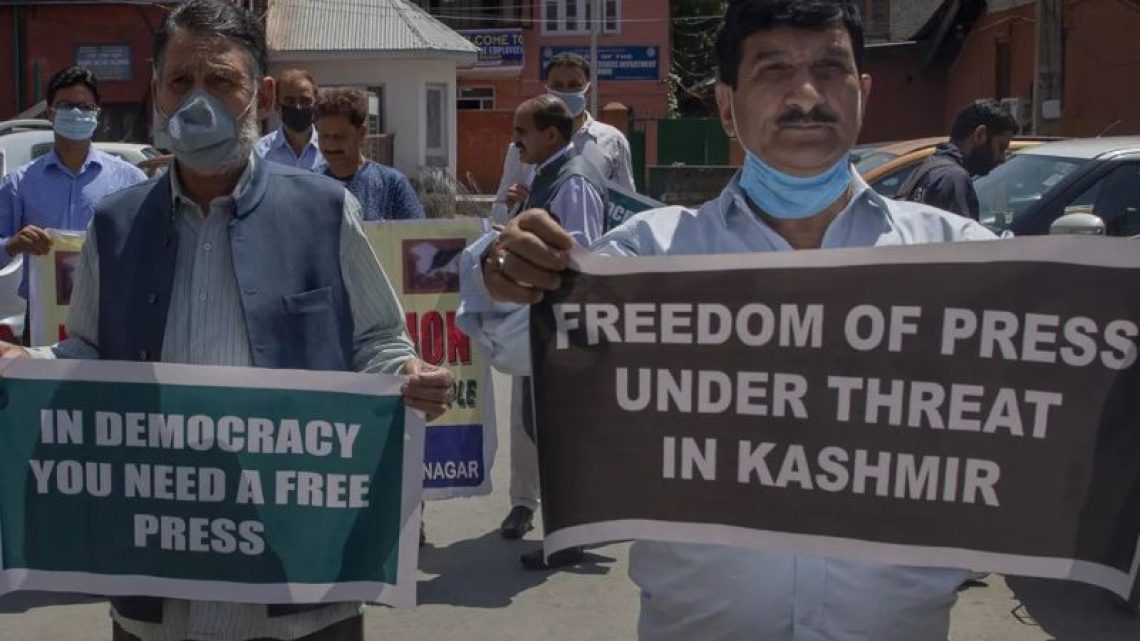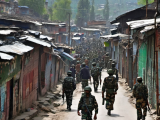
Press Freedom Under Siege in IIOJK
June 3, 2024Press freedom in Indian-illegally occupied Jammu and Kashmir faces significant threats as journalists endure harassment, intimidation, and digital repression by Indian authorities. Reporters Without Borders (RSF) has highlighted the severe challenges faced by the media in this conflict-ridden area, pointing to frequent internet shutdowns and other restrictive measures as key tools of suppression.
RSF’s recent findings, echoed by a private TV channel, underscore that IIOJK has emerged as one of the most dangerous places for journalists. The report reveals that media personnel in Kashmir are subjected to constant threats, including physical violence and psychological pressure, which has forced many to adopt self-censorship to ensure their safety and continue working.
In recent years, digital repression has escalated, with the Modi government employing frequent internet shutdowns to disrupt communication and information dissemination. Following the abrogation of Article 370 in August 2019, which stripped Jammu and Kashmir of its special autonomy, the region experienced its longest internet blackout, lasting seven months. These extended shutdowns, along with imposed curfews and roadblocks, have created substantial barriers for journalists attempting to report from the ground.
The removal of Jammu and Kashmir’s statehood and autonomy has intensified restrictions on press freedom. Anti-riot measures enforced by the Indian government have further impeded journalists’ ability to report accurately and timely. Although some internet services have been partially restored, access remains limited and under strict surveillance, continuing to hamper journalistic efforts.
The climate of fear and repression has drawn widespread criticism. Since August 5, 2019, journalists in Kashmir have been operating under stringent restrictions and facing ongoing threats. Amnesty International and other human rights organizations have condemned the arrest of Irfan Meraj, a freelance journalist from Indian-administered Kashmir, calling for his immediate and unconditional release.
Local journalists describe the increasing difficulty of covering events in Kashmir. International journalists also struggle to report freely due to continuous internet outages and other obstacles. Despite these severe limitations, the Modi government claims that the media in Jammu and Kashmir enjoys full freedom without any intimidation or pressure.
The situation paints a stark picture of the challenges faced by journalists in Kashmir. The use of digital repression, physical intimidation, and restrictive measures highlights the ongoing struggle for press freedom in the region. As the international community continues to call for greater freedom of the press and respect for human rights, the plight of journalists in Kashmir remains a pressing issue that demands urgent attention and action.
In this fraught environment, the resilience of journalists in Jammu and Kashmir is commendable. Their determination to report the truth, despite facing formidable obstacles, underscores the critical need for a free and independent press in maintaining democratic principles and ensuring accountability. The global community must stand in solidarity with these journalists and advocate for the restoration of their rights and freedoms in IIOJK.

